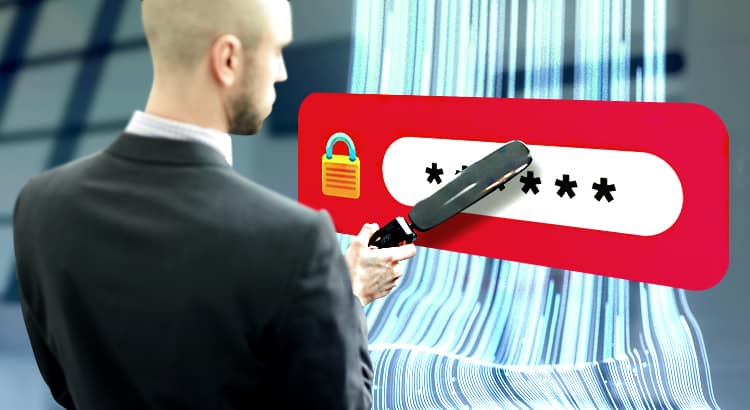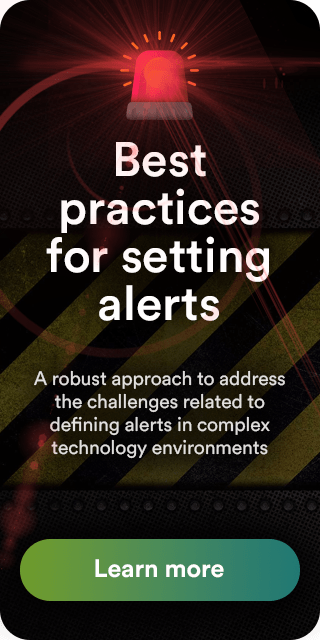A few rules for safe password management
In this, our competent blog, we boast of always giving you good advice and providing you with the technological information necessary for your life as a technologist to make sense. Today it is the case again, we will not reveal the hidden secret about the omnipotence of Control/Alt/Delete, but almost. Today in Pandora FMS blog, we give you a few tips for safe password management.
Safe password management
The purpose of this article is for users to be responsible for keeping their coveted passwords or authentication information safe when accessing confidential information. Because think about it, dear reader, how long ago did you come up with your first password? Surely it was to enter your select club in the treehouse. Maybe you even still choose the same for your social networks, Netflix or office pc. Was it as ordinary as your birth date? Your name and the first two acronyms of your surname? “RockyIV”, which was the name of your fourth favorite pet and movie? I don’t blame you, we have all been equally original and carefree when choosing a password.
But that is over! Many things already depend on this password, on this motto or pass that must include more than eight characters and at least one capital letter and one number. Your company security is not a game, damn it! There is a lot of mischief and felon out there that can put you and your businesses in a loophole, because of a vulnerability such as having a poor password! But do not worry, we will help you, we will talk about safe password management. We are Pandora FMS blog, we like potato salad, Kubrick movies and fighting against injustices!
Recommendations for safe password management
*Obvious but vital fact: User IDs and passwords are used to check the identity of a user on systems and devices. I just point that out here as an outline in case someone is so lost that they don’t know this. I repeat that we are talking about strong password management, so knowing what a password is is a must and saves time.
Said passwords are necessary for users to have access to information, normally, even if the merit is not recognized: capital information in your company. User IDs and passwords also help ensure that users are held accountable for their activities on the systems they have access to. Because yes, telereader friend, users are responsible for any activity associated with their user IDs and passwords. For that reason, it is very important for you to protect the password with your life and comply with the following policies related to them:
- Users may not, under any circumstances, give their password or a password indication to a third party. *This seems obvious, but trust me, it is not. People sneak passwords like they’re office whispers or reggaeton choruses.
- Users will not use user identifiers or passwords of other users. *As we can see, in this case, sharing is not living.
- Users must change initial passwords or passwords received as temporary “reset” passwords immediately upon receipt. *For me, this is the most exciting and creative part, you never want to set the abstract code they give you, you want to improvise, imagine, CREATE!
- Users should change their passwords if they suspect that their confidentiality may have been compromised, and immediately report the situation as a security incident. *Don’t be ashamed of yourself, admit that someone may have violated your secret and repent before it’s too late.
- Users should not use the “remember password” function of programs. For example, if an application sends users the message of “automatically remember or store” the user’s password for future use, they will have to reject it. *This is a piece of information you did not know, huh? Well, it is as interesting as it is important.
- Users should not store passwords without encryption, for example, in a text file or an office document. In this case, this document must be protected with access control.
- When an administration password must be communicated, never send by the same means, the user and the password. For example, the user should be sent by email and the password by instant messaging. *I know that sometimes you try to save time, but with these things you better take your time and do not risk it.
- Users should not set the password on a post-it on the monitor, nor on the table, nor in the drawer or “hidden” in another place in the office or among your personal belongings. *This is one of the big mistakes everyone makes. Yes, post-its or notebook sheets have always helped us, but this time they are too obvious to keep such a big secret.
- Users should not use the same password for two systems or different applications. *Sorry, but you will have to memorize more than one. But rest assured, if a chimpanzee could recognize the descending sequence of nine numbers, someone who graduated from elementary school can do better.
- Users who find out the password of other users must report it, ensuring it is changed as soon as possible. *Here fellowship first and foremost. It is not only right hugging after company dinners. Camaraderie above all!
- Users must change their passwords at least once a year, or when indicated by the system, and in the case of administration passwords every 180 days, or in the event of changes of personnel in the company that may know them.
- If now you are afraid because you do not have a strong enough password, it’s normal, but I repeat, calm down, follow the following rules for passwords creation (if the system supports them) and nothing will go wrong:
- a) Passwords must be at least six characters long.
- b) Passwords must not be easily predictable and must not be contained in dictionaries. For example: your username, date of birth, or 1234, we all know that one.
- c) Passwords must not contain consecutive repeating characters. For example: “AABBCC”.
- d) Passwords must have at least an alphanumeric character, a numeric character, and a special character.
Good, and so far that was the lecture about being responsible that you must assume and internalize if you want things to go smooth at least in terms of passwords and vulnerabilities. Oh, nothing to thank us for! You know: “Life is beautiful. Password yourself”. Look, that could be your new password, right? No, the answer is NO! REMEMBER EVERYTHING WE LEARNED TODAY IN THIS ARTICLE!
Would you like to find out more about what Pandora FMS can offer you? Find out clicking here .
If you have to monitor more than 100 devices, you can also enjoy a FREE 30-day Pandora FMS Enterprise TRIAL. Installation in Cloud or On-Premise, you choose !! Get it here .
Last but not least, remember that if you have a reduced number of devices to monitor, you can use the Pandora FMS OpenSource version. Find more information here .
Do not hesitate to send us your questions. Pandora FMS team will be happy to help you!
And if you want to keep up with all our news and you like IT, releases and, of course, monitoring, we are waiting for you in our blog and in our different social networks, from Linkedin to Twitter through the unforgettable Facebook . We even have a YouTube channel , and with the best storytellers.

Dimas P.L., de la lejana y exótica Vega Baja, CasiMurcia, periodista, redactor, taumaturgo del contenido y campeón de espantar palomas en los parques. Actualmente resido en Madrid donde trabajo como paladín de la comunicación en Pandora FMS y periodista freelance cultural en cualquier medio que se ofrezca. También me vuelvo loco escribiendo y recitando por los círculos poéticos más profundos y oscuros de la ciudad.
Dimas P.L., from the distant and exotic Vega Baja, CasiMurcia, journalist, editor, thaumaturgist of content and champion of scaring pigeons in parks. I currently live in Madrid where I work as a communication champion in Pandora FMS and as a freelance cultural journalist in any media offered. I also go crazy writing and reciting in the deepest and darkest poetic circles of the city.

















